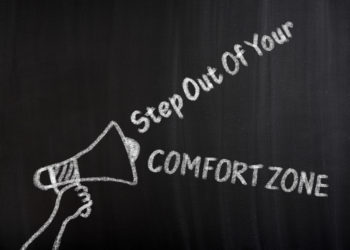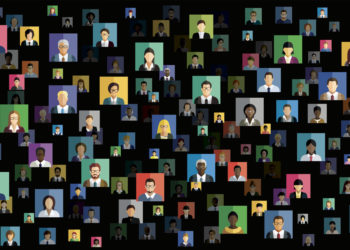The lack of diversity at the top of pretty much every profession is well-documented, and scholarly communications is no exception. Compared with the number of women who work in our community overall, there are woefully few leaders, while people of color are very under-represented at all levels. Women of color who are leaders are even more of a rarity.
So it is a real privilege to be able to share this “conversation” between three such leaders — Dr Salina Gray, Science Educator; Raquel Tamez, CEO, Society of Hispanic Professional Engineers; and Dr Rochelle L. Williams, Project Director and Co-Principal Investigator, The ARC Network, Association for Women in Science.
My thanks to Damita Snow, a fellow member of SSP’s Diversity & Inclusion Task Force, for introducing me to them and for her help with this post. Please feel free to join this conversation yourselves via the comments!
Let’s start by finding out a little about each of you — your background, your journey to being a leader, and your current position.
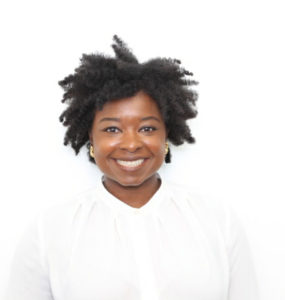 Rochelle: Being a leader was never the goal, only using my engineering skills to solve problems and positively impact my community. After completing my doctoral studies and determining that a tenure-track life wasn’t for me, I started my professional career at ABET headquarters in Baltimore, MD. Over the course of my five years there, I was promoted three times, going from a manager to the director of the department. I learned the value of working smarter, not harder, and other foundational leadership skills. I transitioned from working in a silo to working across departments, learned how to work with external consultants all over the country, and most importantly, how to [not] build trust among teams. But it was during my time at Prairie View A&M University when I worked with then Provost, Felecia M. Nave, that I learned what it meant to be a courageous leader dedicated to addressing systems that compromise change efforts. Today, I am the Co-Principal Investigator and Program Director of the ADVANCE Resource and Coordination (ARC) Network at the Association for Women in Science (AWIS) in Washington, DC. This effort, funded by the National Science Foundation, aims to bridge the gap between researchers and practitioners dedicated to achieving gender equity for faculty in higher education science, technology, engineering, and mathematics (STEM) disciplines. It’s an exciting opportunity that allows me to lead a national initiative that requires engaging a diverse group of stakeholders committed to equity in STEM.
Rochelle: Being a leader was never the goal, only using my engineering skills to solve problems and positively impact my community. After completing my doctoral studies and determining that a tenure-track life wasn’t for me, I started my professional career at ABET headquarters in Baltimore, MD. Over the course of my five years there, I was promoted three times, going from a manager to the director of the department. I learned the value of working smarter, not harder, and other foundational leadership skills. I transitioned from working in a silo to working across departments, learned how to work with external consultants all over the country, and most importantly, how to [not] build trust among teams. But it was during my time at Prairie View A&M University when I worked with then Provost, Felecia M. Nave, that I learned what it meant to be a courageous leader dedicated to addressing systems that compromise change efforts. Today, I am the Co-Principal Investigator and Program Director of the ADVANCE Resource and Coordination (ARC) Network at the Association for Women in Science (AWIS) in Washington, DC. This effort, funded by the National Science Foundation, aims to bridge the gap between researchers and practitioners dedicated to achieving gender equity for faculty in higher education science, technology, engineering, and mathematics (STEM) disciplines. It’s an exciting opportunity that allows me to lead a national initiative that requires engaging a diverse group of stakeholders committed to equity in STEM.
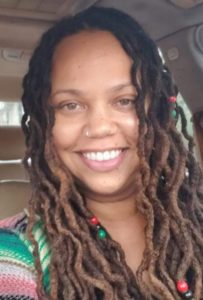 Salina: I’ve worked in education, as a classroom teacher, for 22 years. As a child I experienced a lot of trauma and dysfunction, and school represented a place less about learning the academic content and more about peace and sanctuary. I loved going to school, even though I rarely did homework and was quite talkative in class! I was often described as bright and capable, but disruptive. I decided at nine years old that I wanted to be a teacher, because I believed that was how I could save the world. I started out teaching high school science but realized that many of my students were struggling with fundamentals, so I decided to go and teach at an elementary school level. I stayed there up until 2014 when I went to pursue a graduate degree. I was interested in understanding the factors impacting the numbers of Black students who were pursuing STEM careers. My dissertation research was focused on the intersection of racial and science identities. It was in graduate school where I learned that eighth grade is a crucial year in terms of students’ pathway to STEM majors and careers. So once I finished grad school I became a full time middle school science teacher.
Salina: I’ve worked in education, as a classroom teacher, for 22 years. As a child I experienced a lot of trauma and dysfunction, and school represented a place less about learning the academic content and more about peace and sanctuary. I loved going to school, even though I rarely did homework and was quite talkative in class! I was often described as bright and capable, but disruptive. I decided at nine years old that I wanted to be a teacher, because I believed that was how I could save the world. I started out teaching high school science but realized that many of my students were struggling with fundamentals, so I decided to go and teach at an elementary school level. I stayed there up until 2014 when I went to pursue a graduate degree. I was interested in understanding the factors impacting the numbers of Black students who were pursuing STEM careers. My dissertation research was focused on the intersection of racial and science identities. It was in graduate school where I learned that eighth grade is a crucial year in terms of students’ pathway to STEM majors and careers. So once I finished grad school I became a full time middle school science teacher.
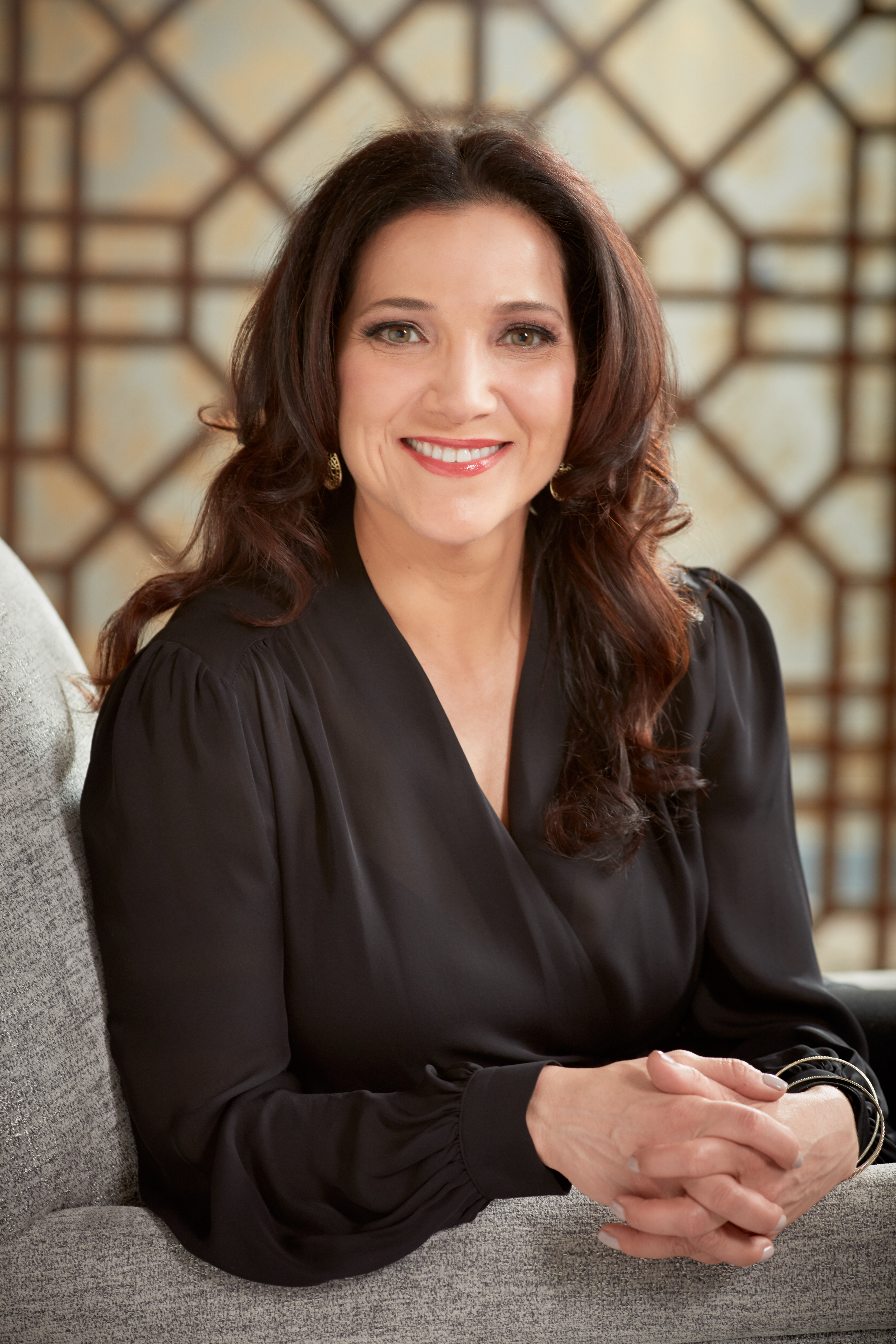 Raquel: I currently serve as the CEO of the Society of Hispanic Professional Engineers (SHPE). Since onboarding in June 2017, I’d like to think that I have brought a renewed energy to our membership organization, creating new and expanding current national programs, services, and resources offered to our 11,000 members across 230+ chapters nationwide. As the CEO, I guide SHPE’s mission of empowering the Hispanic community to realize its fullest potential through careers in STEM — science, technology, engineering and math. I envision a future where Hispanics are recognized as leading scientists, innovators, engineers, and mathematicians. Prior to SHPE, I served as the Chief Legal Officer, General Counsel and Senior Vice President of Legal for SourceAmerica, a national nonprofit agency that creates employment opportunities for people with significant disabilities. Before that, I was Deputy General Counsel of Global Litigation at CSC, a Fortune 100 global leader in next generation IT services and solutions.
Raquel: I currently serve as the CEO of the Society of Hispanic Professional Engineers (SHPE). Since onboarding in June 2017, I’d like to think that I have brought a renewed energy to our membership organization, creating new and expanding current national programs, services, and resources offered to our 11,000 members across 230+ chapters nationwide. As the CEO, I guide SHPE’s mission of empowering the Hispanic community to realize its fullest potential through careers in STEM — science, technology, engineering and math. I envision a future where Hispanics are recognized as leading scientists, innovators, engineers, and mathematicians. Prior to SHPE, I served as the Chief Legal Officer, General Counsel and Senior Vice President of Legal for SourceAmerica, a national nonprofit agency that creates employment opportunities for people with significant disabilities. Before that, I was Deputy General Counsel of Global Litigation at CSC, a Fortune 100 global leader in next generation IT services and solutions.
I started my legal career as a trial lawyer for the U.S. Department of Labor wherein I represented enforcement agencies like OSHA, MSHA, and Wage & Hour. I then moved on to become corporate counsel in Labor & Employment (L&E) for Mary Kay Inc. (MKI) where I supported MKI’s 35 international subsidiaries. I then moved into private practice as a Partner of a small firm wherein I represented individuals in various legal matters. Thereafter, I joined ASC, a Xerox company where I handled commercial litigation in addition to L&E. I made a pit stop with a boutique litigation firm where I represented CSC before going in-house counsel with them. In each of my positions,
I was fortunate to increase my scope of responsibility and/or the size and diversity of my team to achieve a greater impact. It’s not been an easy, straight-line upward trajectory. I have been up and down; in and out. I have failed many times and in major ways. I’d like to think that, with the work ethic instilled in me by my immigrant parents, and more specifically, my father who grew up as a migrant farmworker, I have, with an innate tenacity and grit to persevere, learned to be introspective and have gained insights from my so-called failures. I have evolved as a leader and continue to evolve. I aspire to become a transformational leader but oftentimes, depending on the circumstances in front of me, I am a situational leader, and occasionally revert to command and control in order to put out fires and expedite solutions. Over time, I have come to appreciate that as a leader, I need to practice empathy and humility and get comfortable with the notion that I do not and will not always have the answers. I’m on my leadership journey, transforming from Chief Legal Officer to Chief Executive Officer. I used to take pride in asking lots and lots of questions. It’s how I get up to speed and learn quickly and arrive at better-informed answers and solutions. As a law student and trial lawyer you are taught and trained to ask leading questions – questions that get you to the outcome you want. But I have been enlightened recently by my newfound friend, Hal Gregersen, and his book Questions are the Answers. I’m unlearning my inclination to ask leading questions and instead ask “catalytic” questions – questions that lead to more questions and ultimately innovative ideas. I think, as a leader, and most certainly as a CEO, it’s my responsibility to create a culture of disciplined curiosity and spur innovation among the team, in order to remain relevant as a leader and as an organization
Can you tell us about a time that you believe bias, subtle or otherwise, was at play at work?
Rochelle: I’ve witnessed affinity bias decimate an organization’s culture and serve as the catalyst for losing top talent. Affinity bias in the workplace can show up when leaders select team members that are “like me” or “make me feel comfortable.” In this case, when a top leader’s affinity towards one department continuously went unchecked, a negative power dynamic was introduced into the culture. On one hand, staff members quickly learned there were consequences for offering contrasting opinions to this department and, as time went by, this affected morale and retention. On the other hand, the department perceived that their relationship with the top leader generated power over all other staff members.
Salina: There have been many times I’ve experienced it as an adult, specifically while in research and conference environments. Those I’ve been able to navigate and advocate for myself. There was an experience as a child, however, that completely changed the trajectory of my life and potential future in STEM. I was in middle school and was proficient at programming. This was in the early 1980’s in Palo Alto, the heart of Silicon Valley. I was recruited to come and work for a day in the computer lab to help teach adults word processing; I believe it was BASIC programming language. I remember being so excited, and also one of the only — if not the only — Black student. I was also one of very few, if any girls. At the end of the work day, there was a party, or celebration with pizza and Star Trek videos. I remember feeling like a total outcast. No one would talk to me. No one made space for me to join the circle. So I sat there on the periphery, feeling completely isolated. I knew why, as people had earlier expressed shock and disbelief that I had been chosen to participate. I felt myself near tears, so I got up and left and no one came after me. Not even the adults. That was the day I decided that I was no longer interested in computers or computer programming. I decided that clearly, as a Black girl, this was not for me.
Raquel: Before I onboarded with SHPE, an executive at an organization I worked at called me a “feisty Latina.” It took me aback because of the context: how it was said, when it was said. It was meant to be derogatory. I’m hardly ever speechless but I didn’t know how to respond. I was in a state of shock. The comment stuck with me and I thought about it – a lot. It bothered me. But it wasn’t until I spoke about it with a mentor that I was fully able to process the experience. My mentor said: “You know, you need to reconcile this for yourself. I’m concerned that you’re going to carry this with you in an unhealthy way.” He then invited me to think about whether or not I was going to lean into being a feisty Latina. Would I turn something belittling into something empowering? Would I stand proud as exactly what that executive called me, a feisty Latina? I’ve given it a lot of thought, and I have decided: Yes, I’m going to be that feisty Latina. I am going to fight and advocate for what’s right. It brings me back to why I decided to go to law school in the first place: justice, equality, and fairness — and just doing the right thing. I tell Latinas and more specifically SHPEtinas (SHPE’s female members) whenever I get the chance that they need to figure out for themselves how they define “feisty Latina,” and what it means for them. I also tell young Latino men that they need to back up the feisty Latinas in their lives.
Throughout my legal career I was asked whether or not I had been sexually harassed. Yes, I have; and I dealt with it, and continue to deal with it, directly and expeditiously. I’ve also been asked whether I’ve been discriminated against based on my gender, race, and/or my ethnicity. No, I haven’t – at least not that I am aware — until now, in my role as CEO. When I onboarded with SHPE in June 2017, I entered my new role just as the #MeToo movement launched and American society began to take note of racial, ethnic and gender-based disparities in STEM industries. Since my decades of work in the male-dominated legal field and litigation world, I have actually experienced an uptick in chauvinistic micro-aggressions in my current role as CEO. Maybe it’s the title and position, but I feel that men are trying to put me in my place, in sometimes subtle and sometimes not-so-subtle ways. I’m continuously affronted with comments such as, “Raquel, you need to be more nurturing,” and “You’re not being sensitive enough,” or “Raquel, you’re trying to flex your muscles.” When would they ever say that to a male CEO? They wouldn’t.
How do you handle perceived/actual bias?
Rochelle: I love how Iyanla Vanzant always says, “call a thing a thing,” and that’s what I do when handling perceived/actual bias. However, pairing that directness with the Four Agreements – Don’t Take Anything Personally; Don’t Make Assumptions; Be Impeccable with Your Word; and Always Do Your Best – has helped me confront bias in a constructive and generative manner. I remind myself that someone else’s bias is less about me and more about who they think I am or who I remind them of. From there, after assessing both my physical safety and the well-being of my mental health, I determine if I will address the bias in that moment or at a later time.
To keep myself from making assumptions about the situation, I ask, “Can you tell me more about what you meant when you said…”
With this clarity, I’ve found that this makes it easier for me to have these difficult conversations based on facts. Not working from a place of assumption is the difference between having a confrontation and a teachable moment.
Salina: I’ll be honest and say that more often than not, I’ve read (assumed) bias when perhaps there wasn’t any. That is part of the struggle of living in a Black or Brown body — having to assess whether or not a ‘slight’ of any sort is due to race. Because of the centuries of racial hegemony brought about by global White supremacy, it is nearly impossible to rule out racial bias. As Beverly Tatum describes, racism is a smog, and we are all constantly breathing it in, whether we acknowledge it or not. The way I have learned to handle bias is honestly to just call it out, and the way I do that depends on the context. Sometimes it will be a more compassionate form of questioning, and other times it will be much more assertive. I tend to be of the mindset that folk are biased until they prove they aren’t. Being able to work through and work beyond the ways we’ve all been socialized, and the ways we’ve internalized racist ideas is a lifelong journey. Acknowledging, naming and becoming anti-biased is a lifelong journey.
Raquel: First, I have to hit the pause button on reacting, automatically getting defensive, and going for the jugular. LOL. They called me “pit bull in skirt” for a reason back in the day when I tried cases. Nowadays, I try and reframe the situation. I ask questions to seek clarity and to better understand where the person is coming from. And then I tell the person how what they said or didn’t say, or what they did or didn’t do, was perceived/experienced on my part. I’ve had to do this multiple times with certain individuals. Sometimes the person will get it and pivot; and sometimes they don’t or won’t. At that juncture, I make a decision whether or not it’s a battle I want to fight. Whether it’s worth my time and energy. Because sometimes, there’s no changing a Neanderthal and you just have to navigate the best you can and move on.
Did you — or do you — have a mentor and, if so, was it difficult to find someone who understood your views as a woman of color?
Rochelle: I am very fortunate to have three mentors who are invested in the growth of distinctive aspects of my life. However, hitting the mentor trifecta didn’t come without lessons on self-advocacy and self-awareness. Sadly, one of my early-on developmental relationships was short-lived because of the mentor’s refusal to acknowledge his own biases and his constant rejection of my attempts to educate him on his actions. From that situation, I learned that it was just as important that the mentor value my blackness, my womanhood, and my cultural upbringing as much as they value my professional growth.
Salina: I’ve had mentors at different times throughout my life. The reason they became mentors was because they understood my views as a Black woman. The histories, experiences, and trajectories of peoples of color are not monolithic. So I specifically developed mentor relationships with people who were familiar with the experiences of Black women of color. My mentors have been in the therapeutic, self-help, and healing professions. I realized that, in order for me to be a leader for my students and my colleagues, I needed to work through my personal trauma as well as the trauma of centuries of racism, misogyny, and even classism.
Raquel: Yes, I have mentors. Several. Very diverse in fact. And my status as a woman of color has not been a deterrent in identifying and nurturing relationships with mentors that look like me and those that do not. In fact, some of my most trusted career-long mentors are white men. I can count on one or more of my mentors to help talk me off the ledge from time to time, and to shed light on an issue or situation that I’m grappling with from a totally different perspective and proffer an approach or proposed solution that was not on my radar. Some of my mentors are on my personal board of directors – my inner circle of trusted advisers. In my new role as a CEO I have come to realize that my mentors and personal board of directors need to change. The counsel and guidance I needed as lawyer and Chief Legal Officer and General Counsel is very different than what I need now as a CEO. What I have come to experience too, is that being CEO is a lonely number. You are a part of the Board of the organization, but not really. You are a part of the staff, but not really. To whom does a CEO go to commiserate? I have found that the best way to find strength through the adversity that I sometimes face is to unite with others in similar situations. I dream of creating a sisterhood with other Latina leaders — so much that I already have a name for it. I plan to call it FLEX: Feisty Latina Executives. A name with multifaceted meaning. A way of turning belittling micro-aggressions — “You’re a feisty Latina,” and “Raquel, you’re just trying to flex your muscles” — into an empowering catalyst for change. Right now too, I’m trying to serve as a role model for SHPE members. And because I travel all over the country almost weekly, I cannot serve as a mentor to individual mentees but I make an attempt at mentoring through my monthly CEO Corners. I’d like to think that what I reveal and share there is resonating because of the feedback to date.

Do you think mentoring is a good way to help more women of color to become leaders? What other approaches have you found that work?
Rochelle: Absolutely, mentoring will always be an essential path to learning and career growth. But organizations must evolve from tactics that focus on “fixing the women” to inclusive practices that center on “fixing the system.” Instead of only developing initiatives that target women of color or other traditionally marginalized identities, evaluate your organization’s culture to determine what barriers are impeding their promotion in the first place. If organizations are sincere about promoting equitable work environments, they will be intentional about continuously improving their policies and practices and measuring their effectiveness through an intersectional lens.
Salina: I agree, mentoring relationships at every level are crucial to success. We see this with elementary school students all the way through professionals. The beautiful thing is that one authentic and supportive person can do wonders for someone. I also believe that holding space for people to share their stories and their experiences is central. Part of being an effective leader is finding one’s authentic voice and being given the opportunity to speak with that voice. Women too often have been silenced, beholden to stereotypes about what is means to be a ‘woman’, and that often stifles and erases our experiences as leaders in our homes, communities and certainly the workforce. While there are tremendous changes happening, there are still those who believe that women are the inferior sex, and that is compounded for women of color.
Raquel: First of all, I think all women are natural-born leaders. Some of us, though, have to work at it a little harder and with support from others. So yes, I agree, mentoring is one way to help more women of color to become more effective leaders. Sponsorship, however, is the game changer. That’s what we need to focus on and do more of. Whereas mentors advise, sponsors advocate. They vouch for you and put you in the right place at the right time in front of the right people – consistently. One of my sponsors has aspirations for me that I don’t even have for myself. How cool is that? But the thing with sponsors is, they come to you. A sponsor seeks you out. It’s a relationship that is earned, not requested or structured; and it should never be taken for granted. I consider myself fortunate to have had sponsors all along my career and grateful that one has been with me for me for a majority of my legal career and beyond. I won’t share what he has predicted for me, because I don’t want to jinx it, but he’s been spot on before and I’m excited to see it manifest. Another way for women of color seeking to enhance their leadership skills and enhance their leadership style, but one not oftentimes leveraged because of the cost, is executive coaching and personality assessments like Meyer Briggs or Strength Finders. And don’t forget the 360 assessments. Those can be totally sobering. I have had executive coaches and taken self-assessments throughout my career. Coaching is different than mentoring and sponsoring. Coaching follows a more structured and formal approach, and the ideal outcome is to improve performance that impacts your present role/job. I currently have an executive coach and we are focusing on one specific thing that will, ideally, help me become a more effective leader. Executive coaches – the good ones anyway, are worth it and I highly encourage women to invest in themselves in this way.
What would you tell your younger self just entering the workforce?
Rochelle: If you don’t define yourself for yourself, you will be crunched into other people’s fantasies for you and eaten alive [Audre Lorde]. Be your authentic self, love your authentic self, and give your authentic self to the world, everyday.
Salina: Self-care is critical; no matter what society says, your health and wellness come first. Your only duty and obligation are to your highest sense of right. Trust yourself above anyone else. You have nothing to prove to anyone, but yourself. You are capable, prepared, and ready.
Raquel: Relationships. My father told me once when I was starting out, “Raquel, you are not going to work to be everybody’s best friend.” And yes, that’s true, but I took that literally and figuratively. I strictly focused on being the best lawyer I could be. Nose to the grindstone. I erroneously assumed that excellent work would get me ahead. And it did and it will – but only so far. A mentor shared with me once: “Raquel, relationships are the currency of the workplace.” And I have come to realize that this is so very true. I wish I had known this earlier in my career. There is truth to the old adage: It’s not what you know, it’s who you know. It’s probably not what you want to hear but it’s reality. The good thing is that you can do something about it. To be clear, though, what I’m talking about here is more than networking, even the high-powered kind. I’m talking about nurturing relationships inside and outside of your organization. I highly recommend the book: The Gift – A Revolution in Networking Mastery by Matthew Ferry et al. The Gift manual teaches you step by step instructions for putting into action the Law of Contribution, which states that your level of happiness and success is directly proportional to the number of people you serve selflessly. My main takeaway from the book: be a broker of relationships. Connect people that need and should know each other. Don’t be miserly, but instead be overly generous with the connections in your network and making connections on their behalf. I promise they will remember you for it and will, in most instances, be grateful, and will return the gesture when you need it and perhaps when you need it most. But at the end of the day, all of this should be done, not with an eye towards expecting something in return. Do it, just because; it’s the right thing to do. As women of color, we need to stick together.
What do you hope Scholarly Kitchen readers will take away from this post?
Rochelle: Promote women of color. Pay women of color. And use your privilege to challenge systems that impede the full participation of women of color in your organizations.
Salina: We all have biases, silencing ourselves and others will only exacerbate the problem. We have to heal ourselves and develop the resilience so that we can begin to have the necessary conversations to transform these systems that perpetuate injustice.
Raquel: Get out of your head. And get out of your comfort zone. Take calculated risks. Practice resilience and work it like a muscle. (I used to be a powerlifter at the University of Texas. Hence, the analogy.). I think as women of color we sometimes suffer from deep-rooted low self-esteem and we can be overly critical and judgmental of ourselves (and others). We hold ourselves to unrealistic and fictitious standards. Silence the uber-critical inner voice that tells you that you are not smart enough or not good enough. Instead, embrace that you are imperfect. That you will make mistakes. That you will fail. That you will not have all the answers. And that it’s okay. It will be okay. Learn from those mistakes and failures. And be kind to yourself. Take care of yourself. Continuously work towards self-actualization and personal transformation. Remember you are a natural born leader. But leadership skills and style need to be honed. So get the support you need. And along the way, along your journey — because it’s a journey and not a destination — look around and do what you can when you can for other women of color. And reach across the racial, ethnic, sexual-orientation, and generational divide. Because we are better together.
Discussion
16 Thoughts on "On Being a Leader Who Happens to Be a Woman of Color: A Conversation with Salina Gray, Raquel Tamez, and Rochelle Williams"
Thanks, Alice, Rochelle, Salina, Raquel, and Damita, a very thoughtful and inspiring post. I’m drawn to think about the time I lived in China, some 20 years ago, one of a handful of western people there at the time, reflecting on experiences/history it took some time to fully understand cultural nuances and unconscious biases, on both sides, but I do believe the blended results and experiences made for better relationships and a better world. During my time in China, I also found team sports a way to bring together many diverse nationalities, cultures, and backgrounds, to level the playing fields, have a common shared goal, removing biases and barriers. The people from the 15 or so different nationalities I played in the soccer team with are still all close and trusted friends to this day. Bringing things back to this post, I do feel it’s so so important to keep educating, raising awareness, healing, and finding more creative and thoughtful ways to change the status quo and narrative, and this is definitely something SSP and it’s Board/Leadership are passionate about.
Thank you for sharing your insight!
This was really helpful. I needed some of these tips this morning. Love Rochelle’s response to the “perceived/actual bias” question.
Thank YOU for reading and commenting!
Thank you! Thank you! Thank you for sharing your experiences and advice. The authenticity was a breath of fresh air!
Much much appreciated!
What an impressive group of people! Thank you for sharing your experiences and wisdom. Lots to reflect on and action here…
Much gratitude for your kind words!
So much wisdom here–thank you all for sharing it. I was particularly interested in Raquel’s mention of a “culture of disciplined curiosity”–would love to hear more about that.
Rhank you for reading and taking the time to comment!
Exceptional article. I notice that each leader is grounded in a growth mindset, one that seeks to find and build on the successes in initial failures. Resiliency is essential in every leader, but particularly so for these and all women in light of the obstacles they articulated so well. The example of resiliency that they are providing for others is inspiring.
Thank you for mentioning growth mindset and resiliency. These are both central to social emotional health and wellness.
Thank you for sharing this! I came from China where people are not so color-sensitive (because everyone is of the same color), which doesn’t mean no bias and discrimination. There are a lot and it’s explicit. After I moved to the US, I found myself with many new tags, such as a woman of color, minority, new immigrant, and so on. There is new bias, much subtler, too. I am often not sure whether it is really there and how to react. The wisdom all of you shared in this article is really helpful!
Very thoughtful comment. Thank you for sharing your story!
Thank you SO much for this post! There were many things from each person that resonated with me. First, ROCHELLE was spot on with her comments about affinity bias. At my organization, this is a huge problem, and it is the most challenging thing to overcome in hiring committees. Affinity bias can lead to stagnation, it can lead to negative groupthink, and it can create a terribly homogeneous closed culture. I loved that SALINA used Beverly Tatum’s description of racism as a smog we’re constantly breathing in. It’s an apt description. We inhale this mess and it ends up coloring our perceptions and allows biases to fester. Also, Salina’s words on self care are important. “Your only duty and obligation are to your highest sense of right”…wow! I love that! And finally, it was awesome of RAQUEL to mention sponsorships. I learned about this practice a few years ago, and I agree that it is a transformative experience to have someone invest in aspirations you didn’t even have for yourself.
Much much gratitude Dr. Brown! Your reflection is greatly appreciated.
